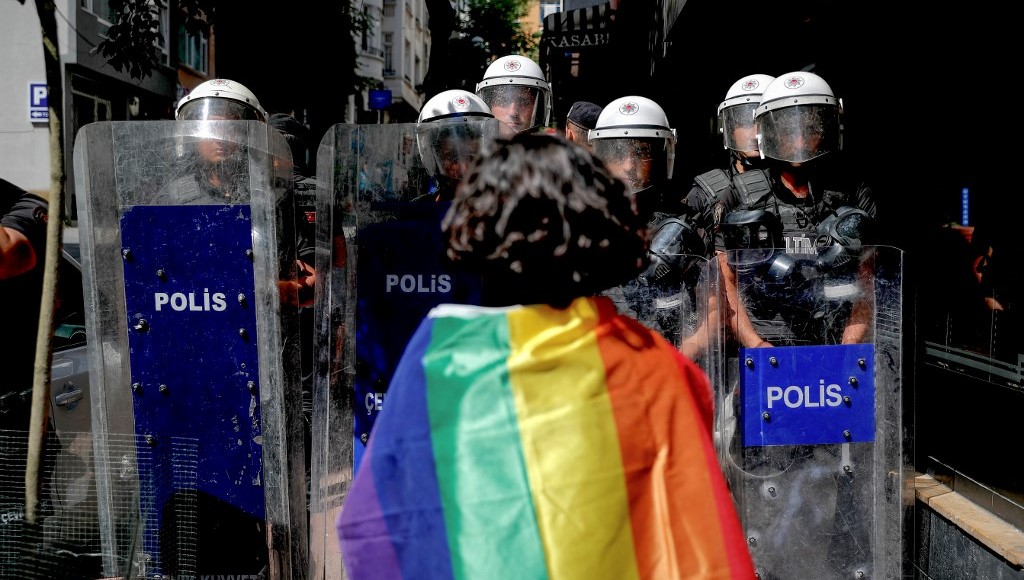Turkish police on Sunday detained 113 people at a Pride march in İstanbul, with another 50 detained at a similar event İzmir, in what local officials called an effort to halt “propaganda” undermining “national and spiritual values,” according to local media.
The detainees participated in the Pride March on Sunday, defying a ban imposed by the offices of İstanbul Governor Davut Gül and the Beyoğlu district governor. Gül, newly appointed by President Recep Tayyip Erdoğan, confirmed the İstanbul detentions on Twitter and linked them to “preserving the institution of the family.”
“Our national future is dependent on preserving the institution of the family with our national and spiritual values. We will not allow any activity that weakens the institution of the family,” Gül tweeted.
In İzmir, the country’s third-largest city, protesters gathered in the central Alsancak quarter to hold a Pride march on Sunday, despite a similar prohibition by the local governor, who justified the ban by citing a need to “protect public morality.” The police detained attendees and blocked access to parts of Alsancak before the parade’s 6 p.m. start time. Journalists were also prevented from taking pictures at the event, according to LGBTI+ rights organization Kaos GL.
The bans on Pride Week activities have sparked criticism from LGBTI+ groups and activists, who have called the decisions unconstitutional.
“We have gathered to exercise our constitutional right in the face of the systematic discrimination that particularly affects trans women, Kurds, Arabs, refugees and other minority groups within LGBTIQ+,” read a statement from the activists at the Izmir march.
LGBTI+ groups also have gone ahead with their plans to hold their marches despite the bans in the past, which sometimes led to confrontations with the police and detention of the participants.
There have also been instances when the attendees faced criminal charges for “participating in an unlawful assembly” or “failing to disperse despite being warned” and up to three years in prison for taking part in the Pride marches.
Homosexuality is not illegal in Turkey, but homophobia is widespread. After a spectacular Pride March in İstanbul drew 100,000 people in 2014, Erdoğan’s Islamic-rooted Justice and Development Party (AKP) government responded by banning future events in the city, citing security concerns.
It is common for Turkish President Recep Tayyip Erdoğan and other politicians from the AKP to attack LGBTI+ individuals and accuse them of perversion and ruining family values.
Turkey was ranked 48th among 49 countries as regards the human rights of LGBT people, according to the 2023 Rainbow Europe Map published by the International Lesbian, Gay, Bisexual, Trans and Intersex Association (ILGA)-Europe.



